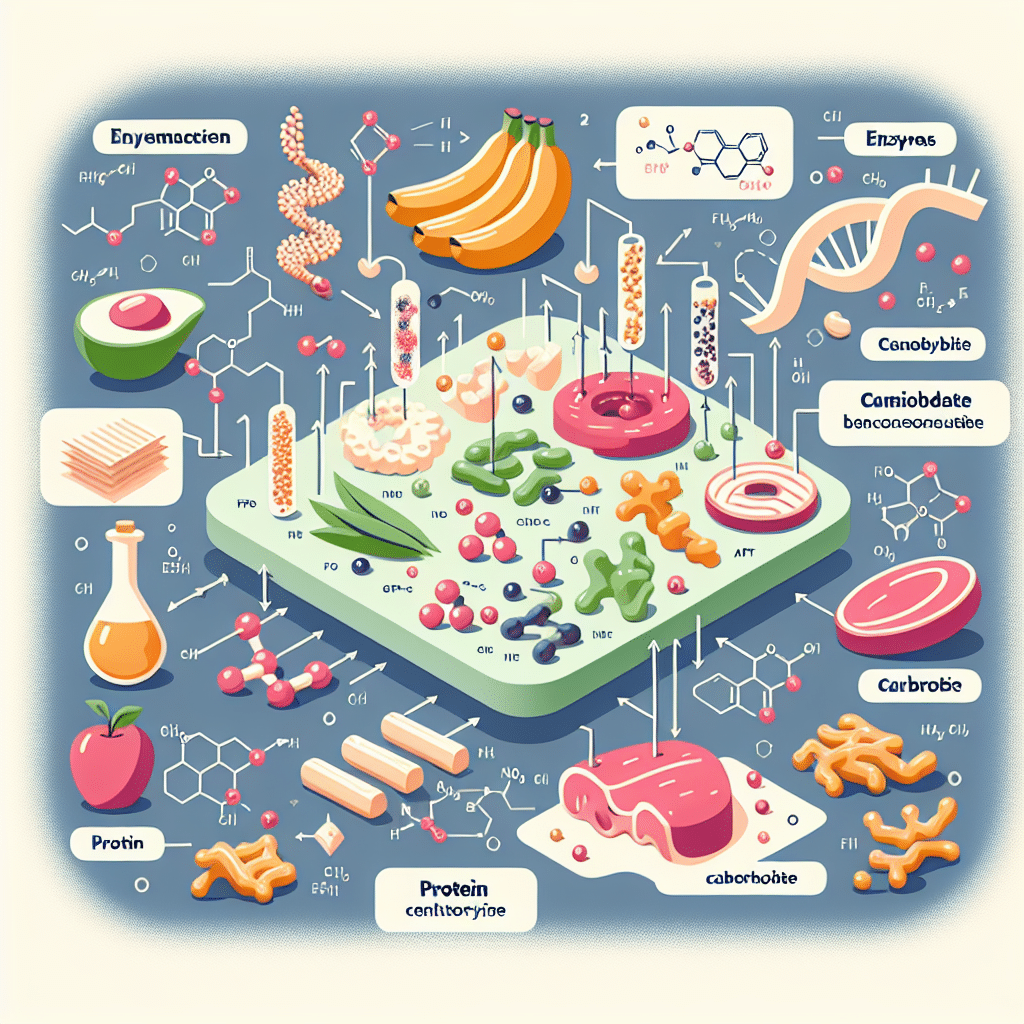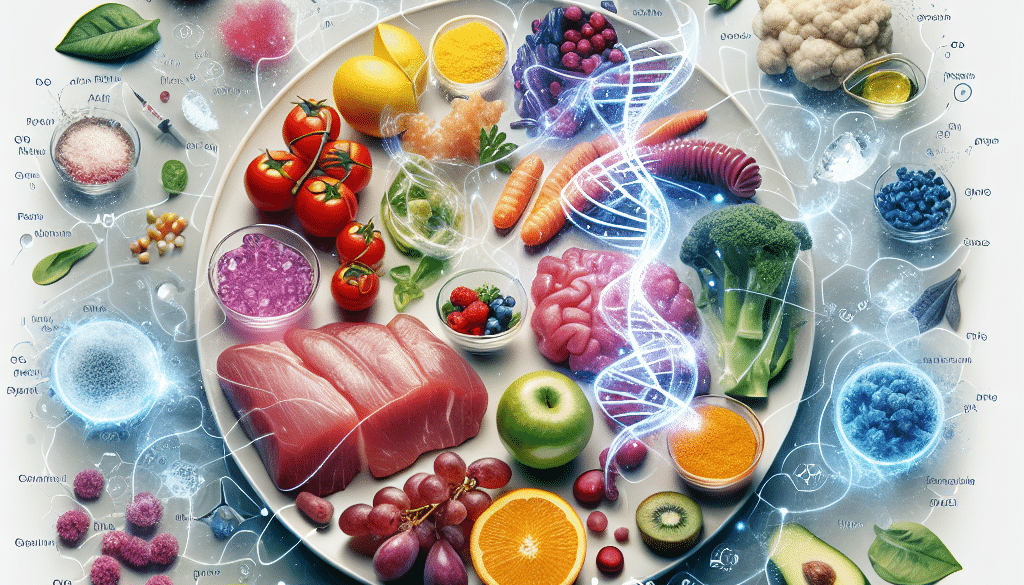Enzymes in Food: Their Crucial Role Explored
-
Table of Contents
- Enzymes in Food: Unlocking Their Essential Role
- The Science of Enzymes in Food Processing
- Enzymes in Dairy Products
- Enzymes in Baking
- Enzymes in Beverage Production
- Enzymes in Meat Tenderization
- Health Benefits of Enzymes in Food
- Case Studies and Statistics
- Conclusion: The Indispensable Nature of Enzymes in Food
- Discover ETChem’s Protein Products
Enzymes in Food: Unlocking Their Essential Role

Enzymes are nature’s catalysts, facilitating countless processes that sustain life. In the realm of food, they play a pivotal role that often goes unnoticed by the average consumer. These biological molecules speed up chemical reactions, ensuring that foods are broken down, preserved, and even transformed into more palatable and nutritious forms. This article delves into the crucial role enzymes play in the food industry, exploring their applications, benefits, and the science behind their function.
The Science of Enzymes in Food Processing
Enzymes are proteins that act as catalysts in biochemical reactions. They are highly specific, meaning each type of enzyme catalyzes a particular reaction. In food processing, enzymes are used to enhance flavor, texture, and shelf-life, as well as to aid in the breakdown of complex molecules.
- Enhancing Flavor and Texture: Enzymes such as proteases and lipases are used to develop and enhance flavors in cheese and meat products. They break down proteins and fats, releasing flavor compounds that improve the taste and texture of food.
- Improving Shelf-life: Enzymes like oxidases can be used to prevent browning in fruits and vegetables, extending their shelf-life and maintaining their aesthetic appeal.
- Assisting in Digestion: Enzymes such as amylases and cellulases help break down starches and cellulose, making it easier for the body to digest food.
Enzymes in Dairy Products
The dairy industry heavily relies on enzymes for the production of cheese, yogurt, and other fermented products. Rennet, a mixture of enzymes, is a classic example used in cheese-making to coagulate milk, separating it into curds and whey. Lactase is another enzyme used to break down lactose, making dairy products more digestible for lactose-intolerant individuals.
Enzymes in Baking
In baking, enzymes such as amylases are added to flour to break down starch into sugars, which yeast can then ferment to produce carbon dioxide, helping the dough to rise. Proteases are used to modify gluten, improving the texture and volume of the baked goods.
Enzymes in Beverage Production
Enzymes play a significant role in the production of alcoholic beverages. In brewing beer, enzymes break down starches in grains into fermentable sugars. In winemaking, pectinases are used to clarify the wine by breaking down pectin, a substance that can cause haziness.
Enzymes in Meat Tenderization
Proteolytic enzymes, such as papain from papaya and bromelain from pineapple, are used to tenderize meat. These enzymes break down tough muscle fibers, improving the texture and palatability of meat products.
Health Benefits of Enzymes in Food
Enzymes not only improve the sensory attributes of food but also offer health benefits. They can enhance the nutritional profile of food by increasing the availability of vitamins and minerals for absorption. Additionally, enzymes can reduce allergenicity in foods like wheat and milk, making them safer for those with food allergies.
Case Studies and Statistics
Several case studies highlight the impact of enzymes in the food industry. For instance, the introduction of lactase in the dairy industry has significantly increased the availability of lactose-free products, catering to the needs of lactose-intolerant consumers. Statistics show that the global market for food enzymes is projected to reach billions of dollars, reflecting their growing importance in food processing and consumer demand.
Conclusion: The Indispensable Nature of Enzymes in Food
In conclusion, enzymes are indispensable in the food industry. They enhance flavor, texture, and nutritional value while also extending shelf-life and making food more digestible. As the food industry continues to innovate, the role of enzymes is set to become even more integral to producing high-quality, nutritious, and enjoyable food products.
Discover ETChem’s Protein Products
If you’re looking for high-quality protein products, ETChem offers a range of collagen products suitable for various applications. Their portfolio includes marine, fish, bovine, chicken, type I, II, and III collagens. These products are characterized by their neutral taste and instant solubility, making them ideal for the food and beverage industry, as well as nutraceuticals and pharmaceuticals.
About ETChem:
ETChem, a reputable Chinese Collagen factory manufacturer and supplier, is renowned for producing, stocking, exporting, and delivering the highest quality collagens. They include marine collagen, fish collagen, bovine collagen, chicken collagen, type I collagen, type II collagen and type III collagen etc. Their offerings, characterized by a neutral taste, instant solubility attributes, cater to a diverse range of industries. They serve nutraceutical, pharmaceutical, cosmeceutical, veterinary, as well as food and beverage finished product distributors, traders, and manufacturers across Europe, USA, Canada, Australia, Thailand, Japan, Korea, Brazil, and Chile, among others.
ETChem specialization includes exporting and delivering tailor-made collagen powder and finished collagen nutritional supplements. Their extensive product range covers sectors like Food and Beverage, Sports Nutrition, Weight Management, Dietary Supplements, Health and Wellness Products, ensuring comprehensive solutions to meet all your protein needs.
As a trusted company by leading global food and beverage brands and Fortune 500 companies, ETChem reinforces China’s reputation in the global arena. For more information or to sample their products, please contact them and email karen(at)et-chem.com today.




